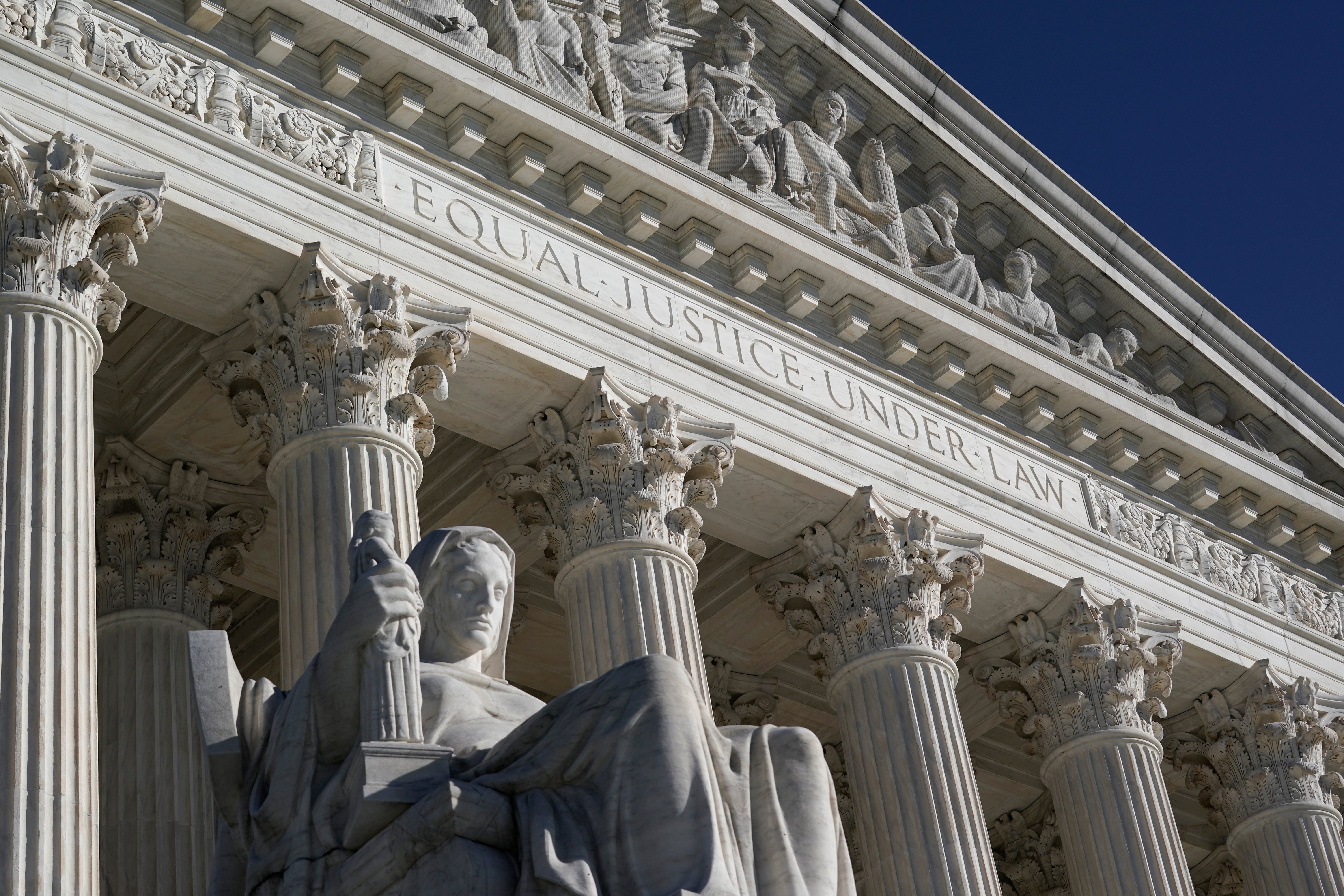Justices rule Muslim men can sue FBI agents over no-fly list
A unanimous Supreme Court has ruled that Muslim men who were placed on the government’s no-fly list because they refused to serve as FBI informants can seek to hold federal agents financially liable

Your support helps us to tell the story
From reproductive rights to climate change to Big Tech, The Independent is on the ground when the story is developing. Whether it's investigating the financials of Elon Musk's pro-Trump PAC or producing our latest documentary, 'The A Word', which shines a light on the American women fighting for reproductive rights, we know how important it is to parse out the facts from the messaging.
At such a critical moment in US history, we need reporters on the ground. Your donation allows us to keep sending journalists to speak to both sides of the story.
The Independent is trusted by Americans across the entire political spectrum. And unlike many other quality news outlets, we choose not to lock Americans out of our reporting and analysis with paywalls. We believe quality journalism should be available to everyone, paid for by those who can afford it.
Your support makes all the difference.A unanimous Supreme Court ruled Thursday that Muslim men who were placed on the government’s no-fly list because they refused to serve as FBI informants can seek to hold federal agents financially liable.
The justices continued a string of decisions friendly to religious interests in holding that the men could sue the agents under the 1993 Religious Freedom Restoration Act for what it calls “appropriate relief ”
“The question here is whether ‘appropriate relief’ includes claims for money damages against Government officials in their individual capacities. We hold that it does,” Justice Clarence Thomas wrote for the court.
The three foreign-born men claim in the lawsuit that their religious convictions led them to rebuff agents who wanted them to inform on people in their Muslim communities. “This is a clear prohibition in the Islamic faith,” Ramzi Kassem, the men’s lawyer, told the justices during arguments in October.
The men claim the agents then placed or kept them on the list of people prevented from flying because they are considered a threat. The men have since been removed from the no-fly list.
A trial court dismissed the suit once their names had been dropped from the list, but they argued that the retaliation they claimed “cost them substantial sums of money: airline tickets wasted and income from job opportunities lost,” Thomas wrote. The federal appeals court in New York agreed with the Muslim men, and the high court affirmed that decision.
In recent years, the court has ruled in favor of people and companies asserting claims under the Religious Freedom Restoration Act, or the Constitution’s guarantee of religious liberty.
The decision involving the no-fly list was among four issued Thursday in cases that were argued in October.
In the others, all decided unanimously, the court:
—Reinstated convictions for rape by a military officer and two enlisted men, reversing a military court ruling that had thrown them out because too much time had elapsed between the assaults and the prosecutions. The cases involve women who for different reasons initially decided not to press charges but later changed their minds. The crimes all were committed before 2006. The Uniform Code of Military Justice has been changed so that there is no statute of limitations on rape charges.
—Revived a provision of the Delaware Constitution, struck down by a lower court, that requires that appointments to Delaware’s major courts reflect a partisan balance. The justices did not rule on the substance of the requirement. Instead they held that lawyer James R. Adams, a political independent who challenged the provision, didn’t have the legal right to do so because he had not shown that at the time he brought his lawsuit that he was “able and ready” to apply to be a judge.
—Reversed lower-court decisions that had prevented an Arkansas pharmacy law passed in 2015 from going into effect. The law, Act 900, was enacted to ensure that pharmacies are fully reimbursed for the cost of drugs they dispense to customers.
Justice Amy Coney Barrett had not yet joined the court when the cases were argued and did not take part in the decisions.
___
Associated Press writer Jessica Gresko contributed to this report.